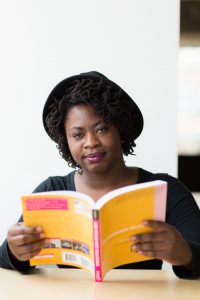Picture this: You’re on your 4th cup of coffee, and in front of you is a mountain of books you hope to conquer before daybreak. We’ve all been there; we’ve all had that big test we thought would make or break our future. But is pulling an all-nighter really the way to go? Burnout is one thing you have to be wary of when studying for a big test. The value of all-nighters is just one of the many misconceptions we’ve grown to accept as truth when it comes to studying. In this article, we’ll be debunking a few more of those myths in the hopes that none of you make the same mistakes ever again.
Is Studying Under Pressure Better?

So, you’ve put off studying for that test until the night before. You think putting your brain in fight-or-flight mode will help crank up the learning process. You think everything is just going to stick because you perform better when under pressure. While this may be true for some people, research says otherwise. “Time pressure” can actually hinder the learning process.
In an experiment, a group that was told they had to do a task under time pressure performed poorly in comparison to the group that was allowed to go at their own pace. This was true whether or not the actual time given was adequate for the task. To explain further, Case Western Reserve University’s Michael DeDonno points out that decision-making is emotion-based, saying, “Time is relevant. Just have the confidence with the time you’re given. I tell my students ‘Do the best you can in the time allotted. When it ends, it ends.'” The lead researcher goes on to note that although nobody can control time, we definitely can control our own perception — emphasizing the importance of avoiding time pressure.
Does Putting in More Hours of Studying Yield Better Results?

By now, the phrase “10,000 hours” is synonymous with learning. The majority of us believe to be truly good at something you have to put in those 10,000 hours. However, we may not always have the time to spare. Take the Bar Exam, one of the hardest tests known to man, as an example. From her experience studying for her own Bar Exam, Special Counsel Erika Heyder-Seeley explains, it isn’t about how much time you put into studying. It’s really about how smart you study. She explains that it’s more important to plan out your study sessions, rather than just trying to plow through all the material on the fly. After all, taking tests is as much about logistics as it is about actual knowledge. The better you prepare your plan of attack, the more effective you’ll be at learning.
Is Reading the Best Way to Study?

Traditionally, reading the material over and over again is considered to be the best way to study. While reading is a necessary step towards comprehension, studies show this method may not be advantageous. A study on learning conducted by Kent State University’s Dr. John Dunlosky showed testing yourself on what you’ve just read may lead to better results when preparing for an exam. This way, you’ll be able to determine how well you comprehended everything. You’ll also be able to continue to work on any gaps you may still have instead of just passively skimming over words.
Are Some People Just Not Built for Tests?

We all learn differently. There are so many different styles, you may find that none of your peers use the same styles. Some of the most common learning styles are visual, aural, verbal, physical, logical, social, and solitary. Given these styles, some of them are not the best option when it comes to taking tests. After all, how does someone study for a test? The answer is quite simple. While we all may have our preferred learning styles, it doesn’t mean we’re limited to just one. You need to realize that different learning styles can be practiced. While this may be difficult in the beginning, it’ll pay off in the long run. You’ll be able to determine what styles work best for you, making the most of the time you spend studying.
Am I Too Old to Learn?

While not directly related to studying for exams, some of you may feel like you’re too old to pursue further learning. “Can’t teach an old dog new tricks,” is how the saying goes. Studies, however, point to the opposite. A report published by Medical News Today reveals that keeping the brain active has been confirmed to slow down brain aging, thus helping to maintain temporal functions. So it’s not a case of age being a hindrance to learning, but rather, the misconception that you’re too old to learn that makes it a self-fulfilling prophecy.
When it comes to studying, don’t get caught up in all the myths that are floating around. Take time to figure out what works best for you. When you do, you might enjoy studying more, and you’ll see your grades improve dramatically. Here’s to YOUR success!
Carolyn R. Owens has over 25 years of proven experience and serves as a Career Strategist, Leadership and Life Coach. She is the Chairwoman and CEO of Infinity Coaching, Inc. where they help you up-level your skills so you can up-level your income. Infinity Coaching, Inc. provides one-on-one and group coaching, organizational training, and personality assessments. Carolyn is certified to give both The Energy Leadership Index Assessment and Myers Briggs Type Indicator (MBTI) Assessment. You can find out more about both assessments and other products and services at https://infinitycoaching.net.
